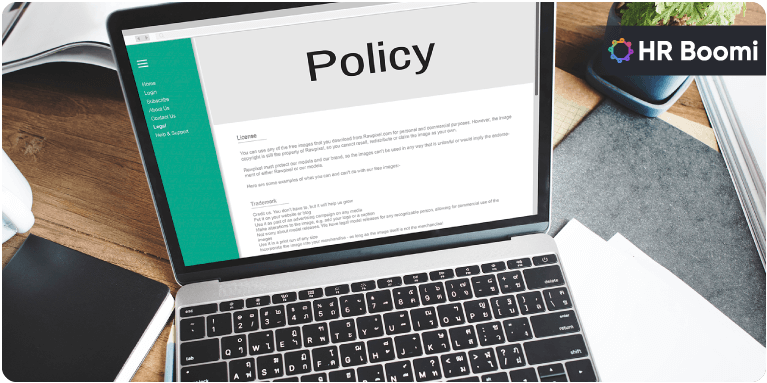
Table of Contents
- The Significance of HR Policies in Multinational Corporations
- Implementing Global H.R. Policies
- Challenges in Globalizing H.R. Policies
- A Case for Ethical H.R. Policies in Multinational Corporations
- The Role of Technology in Global H.R. Policies
- The Evolving Landscape of H.R. Policies in MNCs
- Conclusion
In an era characterized by extraordinary globalization, multinational agencies (MNCs) have emerged as effective players on the worldwide monetary stage. As these corporate giants expand their operations throughout borders, harmonizing and disseminating HR policies have become pivotal in retaining consistency, fairness, and compliance in their diverse offices internationally.
This essay explores the worldwide reach of H.R. rules in MNCs, losing light on the mechanisms of those regulations and the demanding situations they face. By analyzing this tricky interaction between HR policies and the phenomenon of globalization, we aim to offer insights into how MNCs navigate the complexities of global labor guidelines and foster a unified and inclusive work environment.
Statistics: According to a report by The United International Locations Convention on alternate and improvement (UNCTAD), there have been over 44,000 multinational groups worldwide, collectively employing hundreds of thousands of people. This underscores the scale of worldwide operations wherein H.R. guidelines are pivotal.
The Significance of HR Policies in Multinational Corporations
HR policies are rules and tips that govern a corporation’s employee behavior and management practices. They cover numerous components, together with recruitment, compensation, worker blessings, code of behavior, and overall performance appraisal, among others. For MNCs, these policies serve several pivotal purposes:
- Consistency: MNCs often perform in diverse geographic regions with specific cultural norms, prison requirements, and exertion practices. Standardized H.R. guidelines assist in maintaining consistent work surroundings and ensure that personnel is dealt with pretty, irrespective of location.
- Compliance: Staying compliant with nearby labor legal guidelines and policies is a concern for MNCs. H.R. rules should address neighborhood requirements while aligning with the organization’s international requirements.
- Talent Attraction and Retention: aggressive HR policies can be a big factor in attracting and keeping the pinnacle brain. An MNC with attractive reimbursement, blessings, and professional improvement possibilities can lure fine employees worldwide.
- Risk Mitigation: In a generation of heightened international cognizance and prison scrutiny, H.R. regulations are essential in mitigating prison and reputational dangers. A uniform set of moral pointers can save you highly-priced court cases and defend an organization’s photograph.
Implementing Global H.R. Policies
Imposing H.R. policies on a global scale is a large feat. It involves overcoming several complicated challenges simultaneously, such as balancing the various wishes of personnel throughout one-of-a-kind countries. Right here’s how MNCs tackle those challenges:
- Localization: one of the key demanding situations for MNCs is putting the right stability between worldwide consistency and nearby adaptation. At the same time as core H.R. guidelines continue to be regular, a few factors need to be localized to stick to precise laws, practices, and cultural norms in each United States of operation.
- Communication: effective verbal exchange is quintessential in ensuring that employees throughout the globe are aware of and recognize the H.R. policies. MNCs regularly rent a combination of virtual systems, translated archives, and training packages to make sure personnel are well-informed.
- Compliance Management: Staying compliant with various exertions, laws, and policies in multiple countries can be a frightening challenge. MNCs typically establish a compliance management gadget to display, adapt, and ensure adherence to those legal guidelines.
- Diversity and Inclusion: H.R. policies within MNCs must promote diversity and Inclusion, fostering an environment where personnel from diverse backgrounds feel valued and revered. This entails strategies to war against unconscious bias and discriminatory practices.
- Technology Integration: HR-era systems like Human aid records systems (HRIS) and international payroll answers assist MNCs in managing and implementing H.R. guidelines throughout borders. Those systems make certain information accuracy, streamline techniques, and provide a centralized repository for policy files.
Challenges in Globalizing H.R. Policies
Even as the blessings of worldwide H.R. rules are glaring, there are numerous challenges that MNCs face while looking to enforce and preserve them:
- Differing Legal Frameworks: each U.S. has its precise work legal guidelines that can occasionally need help with global H.R. rules. This necessitates steady monitoring and edition to ensure compliance.
- Cultural Sensitivity: some H.R. guidelines that work well in one tradition may be considered irrelevant or offensive in another. Finding the proper stability between global consistency and cultural Sensitivity is a non-stop mission.
- Language Barriers: Translating H.R. rules accurately is necessary to ensure employees fully recognize them. Language obstacles can cause misinterpretation and non-compliance.
- Time Zones and Work Schedules: MNCs frequently perform in numerous time zones, making it challenging to offer real-time H.R. help. Policies concerning bendy work hours and far-off work have won prominence to address this challenge.
- Data Privacy: statistics privacy and protection guidelines range substantially from one U.S. A. to another. MNCs must navigate those variations even as they accumulate and deal with employee data.
A Case for Ethical H.R. Policies in Multinational Corporations
Ethical issues play an imperative role in H.R. guidelines inside MNCs. As groups expand globally, they need to uphold a strong dedication to ethical practices that move beyond mere felony compliance. Here are a few key areas in which ethics come into play:
- Fair Compensation: MNCs should make sure that their employees receive honest reimbursement, regardless of their area. This means addressing wage gaps and imparting equitable possibilities for career development.
- Labor Standards: ethical H.R. guidelines uphold truthful exertion standards, promote secure running conditions and reasonable working hours, and recognize hard work rights, even in countries with lax exertion policies.
- Environmental Sustainability: MNCs can include environmental sustainability in their H.R. regulations. This includes encouraging eco-friendly practices, assisting green tasks, and addressing the carbon footprint related to commercial enterprise operations.
- Diversity and Inclusion: moral H.R. guidelines must sell variety and Inclusion by addressing unconscious biases, prejudices, and discrimination. Those policies foster an environment wherein every worker feels valued and revered.
- Transparency and Accountability: ethical HR policies prioritize transparency and responsibility in choice-making procedures, from hiring practices to promotions and reimbursement.
The Role of Technology in Global H.R. Policies
A generation has become essential for MNCs looking to globalize their H.R. regulations. H.R. software programs and equipment offer various advantages, which include:
- Data Management: HRIS and different H.R. software solutions assist MNCs in controlling employee records efficiently and securely. This is critical while managing international personnel.
- Automation: Automation streamlines H.R. techniques, reducing the executive burden on H.R. departments and ensuring compliance with H.R. rules.
- Analytics: The H.R. era provides records and analytics, which could help MNCs make informed decisions about their H.R. regulations, such as figuring out regions that may want adjustment for better alignment with commercial enterprise desires.
- Employee Self-Service: Many H.R. structures provide self-provider portals that empower personnel to manipulate their HR-related obligations, including leave requests and benefits choices.
- Global Payroll Solutions: MNCs regularly require global payroll solutions to ensure personnel in numerous international locations are paid correctly and on time while complying with neighborhood tax legal guidelines.
The Evolving Landscape of H.R. Policies in MNCs
The global panorama is constantly evolving, and H.R. guidelines within MNCs are no exception. Right here are some emerging tendencies and changes:
- Remote Work Policies: The COVID-19 pandemic accelerated the adoption of far-off work. Many MNCs are reevaluating their faraway painting rules, considering a more permanent shift to hybrid or completely faraway fashions.
- Mental Health and Well-being: The pandemic also highlighted the importance of intellectual health and well-being. MNCs are increasingly more inclusive of mental health support and properly packaged in their H.R. guidelines.
- Sustainability Initiatives: With developing situations for environmental sustainability, MNCs are integrating eco-friendly practices into their H.R. rules, encouraging employees to be more environmentally aware.
- AI and Automation: artificial talent and Automation are remodeling H.R. practices. MNCs use AI for talent acquisition, onboarding, or even in figuring out repayment to ensure extra objectivity and equity.
- Diversity Initiatives: MNCs are specializing in range, equity, and Inclusion more than ever earlier than. This involves setting various goals, offering schooling on subconscious bias, and enforcing inclusive hiring practices.
Conclusion
The worldwide attainment of H.R. regulations in multinational organizations is a multifaceted and ever-evolving phenomenon. MNCs ought to stabilize the want for global consistency with the necessity of nearby versions while adhering to numerous felony, cultural, and ethical issues. As generation continues to improve and societal values shift, H.R. rules within MNCs will undoubtedly undergo further modifications to fulfill the demands of a swiftly globalizing international.
International H.R. rules, when accomplished effectively, make contributions to a harmonious and equitable work environment for employees worldwide. By addressing the demanding situations and embracing the opportunities related to H.R. regulations in MNCs, these groups can continue to thrive in an interconnected, multicultural, and dynamic worldwide marketplace.
Recent Posts
-

In-house vs. Outsourced Payroll: Pros and Cons
-

Mastering Talent Retention: A Corporate Challenge
-

What is employer branding and how to apply it in your company?
-

The Significance of Employee Communication Within
-

What is time management and why is it important?
-

Net salary: what is it and how is it calculated?
-

Enhancing Employee Experience: Strategies for Excellence
-

10 Best Gifts to Boost Sales Channels
